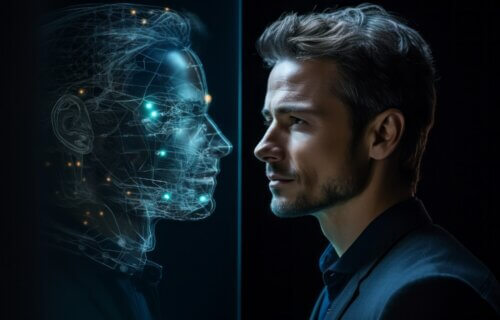PORTSMOUTH, United Kingdom — Could we all be living in a vast computer simulation just like “The Matrix”? A University of Portsmouth physicist is diving deep into this idea, drawing on a new “law of physics” to potentially support the theory that our reality might be artificially constructed.
This concept, known as the “simulated universe hypothesis,” suggests that everything humans experience is similar to a computer game – a created reality where even we might just be advanced avatars. Some, like tech magnate Elon Musk, have expressed belief in this theory. It finds footing in the field of information physics, which theorizes that the essence of physical reality is actually “bits” of information.
Dr. Melvin Vopson’s prior work has delved into the idea that such information not only exists but also has mass. Just as humans have DNA that encodes who we are, the most basic particles in the universe may carry information about their own identities.
A major discovery by Dr. Vopson in 2022 suggested a revolutionary law of physics linked to genetic mutations in organisms, including viruses. It’s a twist on the second law of thermodynamics, a principle stating that disorder in a closed system will always either increase or remain unchanged. Contrary to this, Dr. Vopson observed that in information systems, disorder, or entropy, could either remain the same or even decrease. This revelation gave birth to what he calls the “second law of information dynamics,” or infodynamics.
His study delves into the vast consequences of this new law on everything from genetics to atomic physics and the study of the universe.
“I knew then that this revelation had far-reaching implications across various scientific disciplines,” says Dr. Vopson in a university release. “What I wanted to do next is put the law to the test and see if it could further support the simulation hypothesis by moving it on from the philosophical realm to mainstream science.”
Key revelations from his study include:
- Biology: This new law might change our understanding of how genes mutate. Such insights could drastically influence fields ranging from genetic therapies and drug development to studying viruses and predicting pandemics.
- Atomic Physics: Dr. Vopson’s work might explain certain behaviors of electrons in atoms, shedding light on the stability of chemicals.
- Cosmology: His findings underscore the importance of the new infodynamics law in understanding the universe’s expansion.

“The paper also provides an explanation for the prevalence of symmetry in the universe,” explains Dr. Vopson. “Symmetry principles play an important role with respect to the laws of nature, but until now there has been little explanation as to why that could be. My findings demonstrate that high symmetry corresponds to the lowest information entropy state, potentially explaining nature’s inclination towards it.”
Linking his research to the broader mysteries of the universe, Dr. Vopson suggests that information could be the elusive dark matter, a mysterious substance believed to constitute almost a third of the universe. His work bolsters the idea that information is as real as mass and energy.
“The next steps to complete these studies require empirical testing,” adds Dr Vopson. “One possible route would be my experiment devised last year to confirm the fifth state of matter in the universe – and change physics as we know it – using particle-antiparticle collisions.”
The study is published in the journal AIP Advances.
You might also be interested in:
- Is our universe one big virtual reality? How to test if we’re really living in a computer simulation
- Board games, video games you love reveal how you prepare for life and work with others
- Scientists get one step closer to unraveling the mysteries of time


If we are the dreamed, who is the dreamer?
Do we in our own perspective become the dreamer in our own simulation and that as such, can we create our own afterlife?